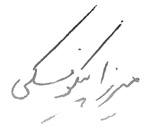[The Lawyer] had, of course, begun work straight away and was nearly ready to submit the first documents. They would be very important because the first impression made by the defence will often determine the whole course of the proceedings. Unfortunately, though, he would still have to make it clear to K. that the first documents submitted are sometimes not even read by the court. They simply put them with the other documents and point out that, for the time being, questioning and observing the accused are much more important than anything written. If the applicant becomes insistent, then they add that before they come to any decision, as soon as all the material has been brought together, with due regard, of course, to all the documents, then these first documents to have been submitted will also be checked over. But unfortunately, even this is not usually true, the first documents submitted are usually mislaid or lost completely, and even if they do keep them right to the end they are hardly read, although the lawyer only knew about this from rumour. This is all very regrettable, but not entirely without its justifications. But K. should not forget that the trial would not be public, if the court deems it necessary it can be made public but there is no law that says it has to be. As a result, the accused and his defence don't have access even to the court records, and especially not to the indictment, and that means we generally don't know - or at least not precisely - what the first documents need to be about, which means that if they do contain anything of relevance to the case it's only by a lucky coincidence. If anything about the individual charges and the reasons for them comes out clearly or can be guessed at while the accused is being questioned, then it's possible to work out and submit documents that really direct the issue and present proof, but not before. Conditions like this, of course, place the defence in a very unfavourable and difficult position. But that is what they intend. In fact, defence is not really allowed under the law, it's only tolerated.
Franz Kafka, The Trial, Translated by David Wyllie
[On origin of Runic alphabet] The word run in Saxon means "whisper," or what is spoken in a low voice. And that means "mystery," because what is spoken in a low voice is what one doesn't want others to hear. So runes means "mysteries"; letters are mysteries.
Jorge Luis Borges, Professor Borges: A Course on English Literature
In "Remembrance of Things Past," Marcel Proust's narrator says that the only true voyage of discovery is not to visit other lands but "to possess other eyes, to behold the universe through the eyes of another, of a hundred others, to behold the hundred universes that each of them beholds." This is one of the central projects of the humanities; it's certainly part of the pleasure we get from art and literature.
Paul Bloom, Imagining the lives of others, New York Times-The Stone
The steady state of mathematical research is to be completely stuck. It is a process that Charles Fefferman of Princeton, himself a onetime math prodigy turned Fields medalist, likens to ''playing chess with the devil.'' The rules of the devil's game are special, though: The devil is vastly superior at chess, but, Fefferman explained, you may take back as many moves as you like, and the devil may not. You play a first game, and, of course, ''he crushes you.'' So you take back moves and try something different, and he crushes you again, ''in much the same way.'' If you are sufficiently wily, you will eventually discover a move that forces the devil to shift strategy; you still lose, but -- aha! -- you have your first clue.
Gareth Cook, The Singular Mind of Terry Tao, New York Times
Please accept from me this unpretentious bouquet of very early-blooming parentheses: (((())))
J.D. Salinger, Raise High the Roof Beam, Carpenters & Seymour: An Introduction
Language does not match up to the complexity of things.
Jorge Luis Borges
- What do you think of Kokoschka's drawings?
- I do not understand them. Drawing derives from to draw, to describe, to show. All they show me is the painter's internal confusion and disorder. I saw his large picture of Prague at the Expressionist exhibition in the Rudolfinum. [...] In that picture the roofs are flying away. The cupolas are umbrellas in the wind. They whole city is flying in all directions. Yet Prague still stands - despite all internal conflicts. That is the miracle.
Conversations with Kafka, Gustav Janouch
How does a person feel when looking at the sky? He thinks that he doesn't have enough tongues to describe what he sees. Nevertheless, people have never stopping describing the sky, simply listing what they see... We have a limit, a very discouraging, humiliating limit: death. That's why we like all the things that we assume have no limits and, therefore, no end. It's a way of escaping thoughts about death. We like lists because we don't want to die.
Umberto eco, Interview with Der Spiegel in 2009
روزی.
روزی ، شاید به همین زودی.
روزی از بیخ میکنم لنگری که ناوم را از دریاها به دور میدارد.
هانری میشو، ساحت جوانی، برگردان بیژن الهی
But in life, a tragedy is not one long scream. It includes everything that led up to it. Hour after trivial hour, day after day, year after year, and then the sudden moment: the knife stab, the shell burst, the plummet of the car from a bridge.
Margaret Atwood
Keep the company of those who seek the truth- run from those who have found it.
Václav Havel
صفحهی اول
